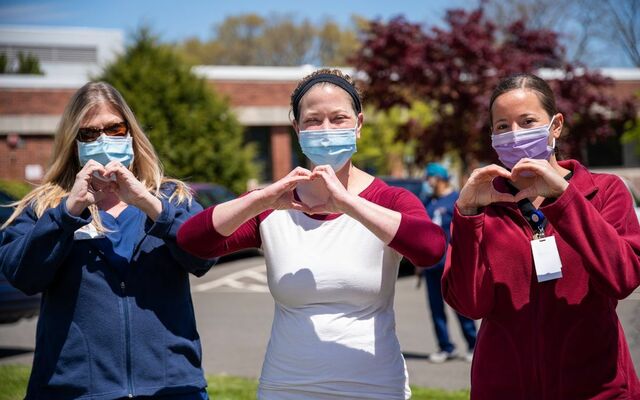HOW TO COPE WITH COMPASSION FATIGUE
Health care workers are easily some of the most respectable and necessary individuals that the world needs and appreciates. In light of COVID-19, those who are in the medical field have been working tirelessly to put an end to this pandemic. With such responsibility on their backs, it sometimes becomes difficult to push emotion to the side and solely focus on their job. In the medical field, one’s entire life is dedicated to helping and healing others; with such impactful work comes a great deal of emotion. Health care workers are known to experience something called compassion fatigue. CF is when those who deal with patients or people who have gone through recent trauma experience secondary traumatization.
There are many different ways to cope with compassion fatigue. It is essential to identify if you or those around you are experiencing symptoms. Some symptoms include frequent headaches, lack of sleep, or simply feeling intense attachment to a particular case or cases.

CURATED JUST FOR YOU
Self-Care
Working in health care could make someone feel like their personal life could be set to the side. Those who take part in the medical field must spend time on themselves and practice self-care. A simple bubble bath or day to yourself may seem unimportant, but self-care allows those who suffer from compassion fatigue to prioritize themself gradually. It becomes easy to embody the word selfless in healthcare, but making time for yourself works wonders in preventing compassion fatigue. This is not only prominent in healthcare but also in religious communities. Mother Teresa made it very clear that nuns must take a year off after caring for those around them for four to five years. Practicing self-care and healing is a great way to cope with compassion fatigue.
See a therapist
A different way of coping with compassion fatigue could be to see a therapist. Therapy is a great way to allow healthcare workers to speak about their experiences and not bottle them up. A therapist will also provide not only closure but the realization of the fact that it is vital to be transparent with your emotions and speak freely upon them. Seeking therapy or treatment while in healthcare is exceptionally valid, considering those in healthcare constantly surround themselves with individuals who have experienced trauma.
Set Boundaries
With any position in healthcare, it’s a great idea to set boundaries between work and your personal life. It may become difficult to learn how to separate personal emotions from those you are healing with compassion fatigue. Throughout healing and caring for those who need it, one must express compassion yet limit themselves to how much they bring their workload home. Healthcare workers deal with the continuous challenge of separating work from their personal life. When caring for others is someone’s occupation, the fine line between how much empathy to give becomes blurry. Setting boundaries between yourself and the patient will allow you to cope with the possibility of developing compassion fatigue.
Develop a hobby
Dealing with compassion fatigue comes in many different forms; another exceptional strategy is developing a hobby. One can explore and set their mind aside for something else with a hobby. Hobbies allow people to focus their attention on something besides their daily struggles. Picking up something as simple as gardening can let you take a break from your work reality. Even watching sports religiously could be a great way to cope with CF. The main goal is to distract yourself from the trauma that you hear daily.
Start Journaling
Lastly, an alternative method of coping with compassion fatigue is journaling. Getting your thoughts and ideas out on paper can allow some closure to the end of a workday. Putting words into a journal or even expressing yourself and drawing gives you that separation from work to your personal life. Writing out your feelings towards the trauma that healthcare workers are regularly exposed to provides a great way to write unfiltered without any judgment or exposure. Compassion fatigue is harsh to cope with, but there are infinite ways to relieve yourself from some of that stress. A few of these tips and tricks might seem insignificant, but in the long run, they help tremendously. Whether you may feel as though you are isolated, there are so many different groups and coping mechanisms that are crucial for healthcare workers to put to use.

We hope you found this article helpful. Have you worked through compassion fatigue? Do you have any tips to share with fellow travel nurses to help them through it as well?
THANK YOU TO ALL OUR FRONTLINE TEAM MEMBERS FOR YOUR HEROIC EFFORTS.
